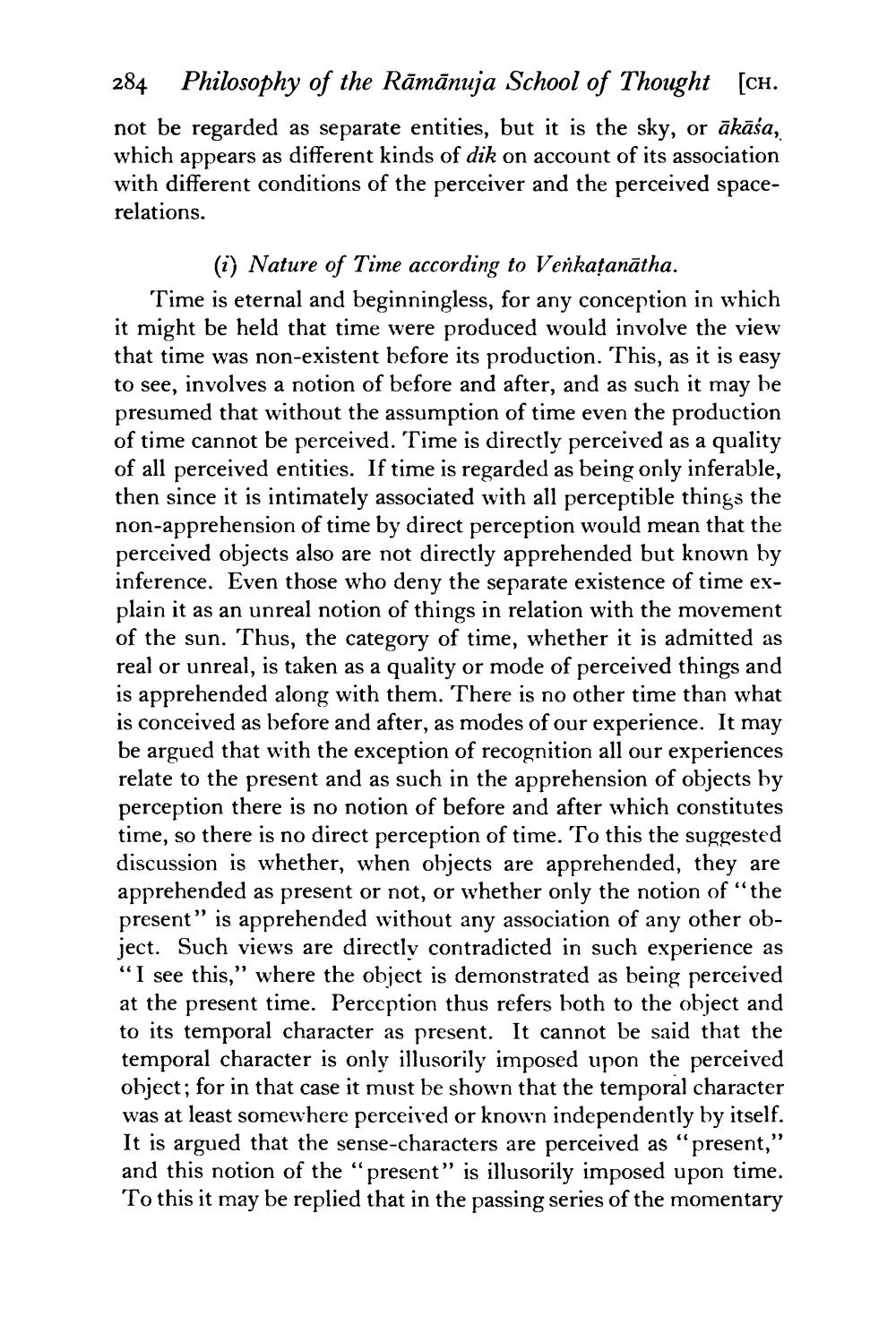________________
284 Philosophy of the Rāmānuja School of Thought [CH. not be regarded as separate entities, but it is the sky, or ākāśa, which appears as different kinds of dik on account of its association with different conditions of the perceiver and the perceived spacerelations.
(i) Nature of Time according to Venkațanātha. Time is eternal and beginningless, for any conception in which it might be held that time were produced would involve the view that time was non-existent before its production. This, as it is easy to see, involves a notion of before and after, and as such it may be presumed that without the assumption of time even the production of time cannot be perceived. Time is directly perceived as a quality of all perceived entities. If time is regarded as being only inferable, then since it is intimately associated with all perceptible things the non-apprehension of time by direct perception would mean that the perceived objects also are not directly apprehended but known by inference. Even those who deny the separate existence of time explain it as an unreal notion of things in relation with the movement of the sun. Thus, the category of time, whether it is admitted as real or unreal, is taken as a quality or mode of perceived things and is apprehended along with them. There is no other time than w is conceived as before and after, as modes of our experience. It may be argued that with the exception of recognition all our experiences relate to the present and as such in the apprehension of objects by perception there is no notion of before and after which constitutes time, so there is no direct perception of time. To this the suggested discussion is whether, when objects are apprehended, they are apprehended as present or not, or whether only the notion of "the present” is apprehended without any association of any other object. Such views are directly contradicted in such experience as “I see this,” where the object is demonstrated as being perceived at the present time. Perception thus refers both to the object and to its temporal character as present. It cannot be said that the temporal character is only illusorily imposed upon the perceived object; for in that case it must be shown that the temporal character was at least somewhere perceived or known independently by itself. It is argued that the sense-characters are perceived as “present," and this notion of the “present" is illusorily imposed upon time. To this it may be replied that in the passing series of the momentary




